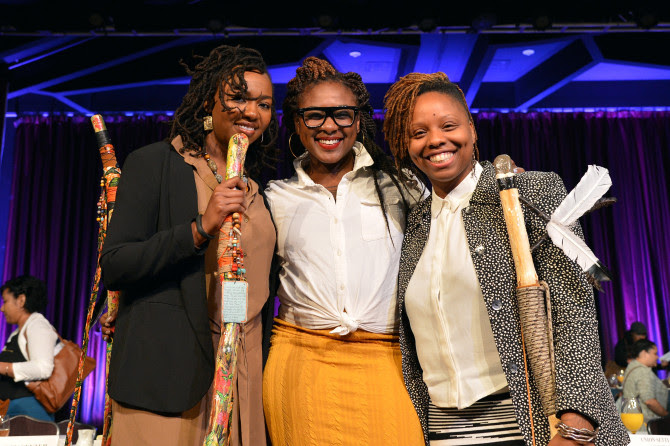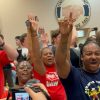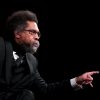By:

Vanity Fair recently released its annual “New Establishment” list to coincide with its third-annual New Establishment Summit. Nestled between Spotify CEO Daniel Ek and three Snapchat stars was a photo of DeRay Mckesson, accompanied by this text:
Crowning Achievement: Transforming a Twitter hashtag, #BlackLivesMatter, into a sustained, multi-year, national movement calling for the end of police killings of African-Americans. He may have lost a bid to become Baltimore’s next mayor, but he is the leader of a movement.
My spirit has been unsettled ever since.
I have not been outwardly vocal about my distrust of and slight contempt for DeRay Mckesson—mostly because his coronation as “the leader of a movement” is something that we’ve seen throughout history. Men either step on the backs of women to snatch accolades and headlines; or, through their loud silence, they become complicit in erasing their names from history.
I lived and worked in Selma, Ala., for many, many years. During that time, one of my jobs was working for the National Voting Rights Museum and Institute. I created community programs, helped to coordinate the annual Bridge Crossing Jubilee festival celebrating the right to vote, and I curated exhibits. For the exhibit work, I had to do mountains of research. In fact, I researched for almost two years before a single picture was put on the walls.
For years I had heard firsthand accounts of movement stories, but I still wanted to be as accurate as possible when recounting history for thousands and thousands of eyes. If they were coming to the museum seeking the gospel truth, I wanted to make sure they left with a praise report.
One of the biggest stories I wanted to ensure was told with the richness and care it deserved was that of Mrs. Amelia Boynton Robinson. I knew Boynton Robinson and her family personally, and I knew of the huge part she played in the Selma movement, but her story had never been told with full accuracy. Disney made a movie called Selma Lord Selma, which blatantly distorted Boynton’s role during that time in favor of highlighting Martin Luther King Jr.
Ava DuVernay’s Selma remedied that on some level, but here is what you may not know:
Amelia Boynton—and her husband, Sam Boynton—were founders of the Dallas County Voters League, which had begun doing voter-registration work more than a decade before any member of the Southern Christian Leadership Conference or Student Nonviolent Coordinating Committee stepped foot in Selma.
King had been opposed to going into Selma, partly because he saw the groundwork laid by SNCC two years earlier as a failure, and he wanted to focus on places where they could achieve easier wins. Amelia Boynton wrote the letter that invited King to Selma in January 1965 and eventually changed his mind about choosing Selma as the hub for the next civil rights battle.
Diane Nash was a prominent figure and integral part of the strategy team that laid the ground work for the movement in Selma, yet you will barely hear her name mentioned.
Marie Foster helped to restart the DCVL in the 1960s and was one of the two women—the other being Amelia Boynton—up front on the line and who were badly beaten on Bloody Sunday.
I’m naming these women because unless you do some research, history has largely erased them or diminished their importance.
We hear all about King, John Lewis, Andrew Young and many other men—as we should. But what of these women? What of Fannie Lou Hamer or Ella Baker? If you study, you may know, but not because you were taught. We hear about Rosa Parks as a “symbol” of the civil rights movement, but not as a movement strategist. We know King cut his teeth in the movement with the Montgomery Bus Boycott, but have you ever heard the name Johnnie Carr?














